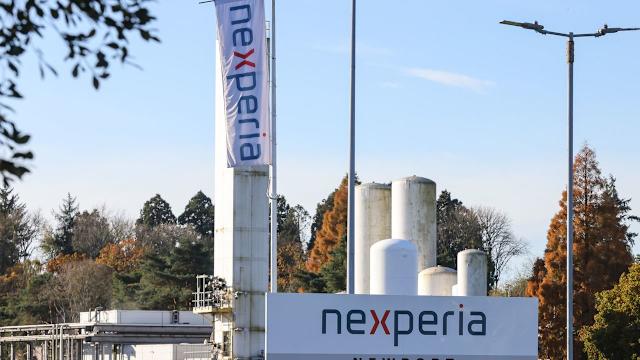On Tuesday, October 14 (Beijing time), Nexperia, a fully owned subsidiary of China's Wingtech Technology, announced via its official website that the Chinese government has imposed export restrictions on its operations in response to the Dutch government's recent takeover of the company's management. The measures effectively ban the export of products made at Nexperia's Chinese facilities, marking the latest escalation in the widening semiconductor trade conflict between China and Western nations.
According to Nexperia's statement, China's Ministry of Commerce earlier this month issued a formal export control order prohibiting Nexperia China and its subcontractors from exporting certain finished components and subassemblies. The company said it is actively engaging with Chinese authorities to seek exemptions from the restrictions and is mobilizing all available resources to minimize the impact.
Nexperia attributed the Dutch government's intervention to actions by CEO and indirect shareholder Zhang Xuezheng, alongside European concerns about semiconductor supply security. The Dutch government seized control of the company last week to prevent what it called the "transfer of crucial technological knowledge" to China. Following the takeover, Nexperia's CFO, Stefan Tilger, was appointed interim CEO, while Dutch businessman Guido Dierick was named non-executive director.
The export restrictions directly affect Nexperia's major 80,000-square-meter (861,000-square-foot) assembly and testing site in Guangdong Province, which produces discrete devices, analog and logic ICs, and power MOSFETs. Wingtech previously invested RMB 1.8 billion (US$250 million) in the facility's advanced packaging expansion in 2021, followed by another RMB 3 billion (US$415 million) upgrade in 2022. Nexperia also operates manufacturing and packaging sites in Germany, the Philippines, Malaysia, and the United Kingdom.

Industry observers view Beijing's move as a direct countermeasure to the Dutch government's actions, reflecting a growing pattern of geopolitical retaliation in the global semiconductor supply chain. China's Ministry of Commerce did not specify the duration of the restrictions, but analysts expect the impact to persist amid rising global scrutiny of Chinese tech investments.
Wingtech Technology issued a statement on October 13 condemning the Dutch government's intervention as "an excessive geopolitical overreach under the guise of national security" and accused it of discriminating against Chinese enterprises. The China Semiconductor Industry Association also voiced concern, saying it will continue to monitor developments and express the industry's position through appropriate international channels.
The restrictions follow a series of tightening global trade measures. On September 29, the U.S. Bureau of Industry and Security expanded its export control rules to include any entity that is 50% or more owned by a company listed on its Entity List. Although Nexperia was not directly named, the rules effectively extended to it through Wingtech's designation last December.
With trade tensions deepening and national security increasingly cited as justification, the semiconductor landscape continues to fragment. Analysts say the Nexperia case underscores the accelerating decoupling between China and Western economies — a shift that could reshape global chip production and supply dynamics for years to come.
+86 191 9627 2716
+86 181 7379 0595
8:30 a.m. to 5:30 p.m., Monday to Friday
